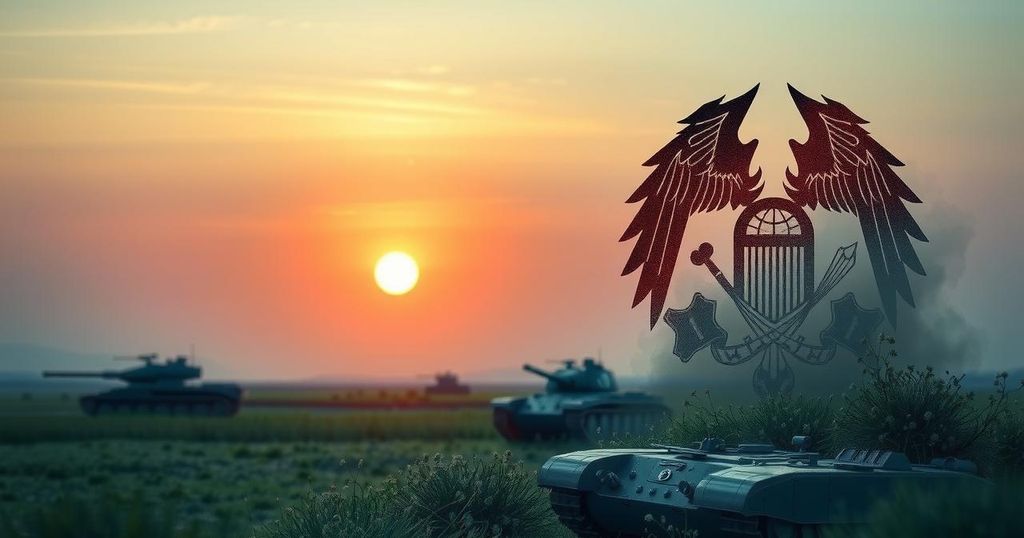North Korean troops have reportedly withdrawn from the frontlines in Russia’s Kursk region due to heavy casualties. About 12,000 soldiers were deployed, and Ukrainian officials report significant losses among them. President Zelensky highlighted the challenges faced by these troops, including adapting to modern warfare and drone tactics.
Recent reports indicate that North Korean troops have withdrawn from the frontline in Russia’s Kursk region following heavy casualties. Ukrainian military representative, Colonel Oleksandr Kindratenko, noted that these troops have not been sighted for approximately three weeks and likely retreated due to significant losses. Ukrainian presidential adviser Mykhailo Podolyak corroborated this information, highlighting the notable decline in North Korean troop presence.
Approximately 12,000 North Korean soldiers were deployed to Russia to bolster defenses in Kursk against Ukrainian incursions, with around 4,000 reported casualties. Ukrainian President Volodymyr Zelensky commented on the situation, affirming the presence of 60,000 Russian forces alongside the North Koreans. Preliminary assessments suggest that one-third of the North Korean contingent has suffered fatalities.
Despite their youth and training, North Korean soldiers have faced challenges adapting to modern warfare, particularly the use of drones. A commander noted that these soldiers are equipped for warfare styles from decades past. However, some accounts indicate their marksmanship skills, particularly against drones, show a degree of military training efficiency.
The North Korean forces have been utilized by Russia in mass assault roles, despite facing substantial losses in engagement. Meanwhile, recent military analyses have indicated Ukrainian advancements in the region of Kursk. The Russian Defense Ministry reported the recapture of the village of Nikolayevo-Daryino, an area situated along the Russia-Ukraine border.
While North Korean troop deployments have not been officially acknowledged by Moscow or Pyongyang, the military cooperation between Russia and North Korea was solidified last year when President Kim Jong Un and President Vladimir Putin established a significant defense pact. This agreement is often viewed as a re-establishment of their historical mutual defense relationship from the Cold War era.
In summary, the withdrawal of North Korean troops from the Kursk region highlights the challenges faced by Russian forces. The significant casualty rates among these troops, along with advancements by Ukrainian forces, represent a noteworthy development in the ongoing conflict. This situation underscores the evolving dynamics of international military cooperation in response to contemporary warfare expectations.
The presence of North Korean troops in Russia, particularly in the Kursk region, surfaced amid the ongoing Ukraine-Russia conflict. Deployed to assist Russian forces against Ukrainian advances, these troops have encountered significant operational difficulties. Their involvement has raised international concerns regarding military alliances and strategies employed in the current geopolitical landscape. The historical context of Russia and North Korea’s defense pact reveals a long-standing relationship now recalibrated for modern warfare scenarios.
The reported withdrawal of North Korean forces from frontline positions in Kursk underscores the significant challenges they faced in adapting to modern combat conditions. With high casualty rates and adjustments in military strategy, this situation exemplifies the evolving nature of warfare. The developments raise essential considerations regarding the effectiveness of international military alliances in contemporary conflicts.
Original Source: www.cnn.com






